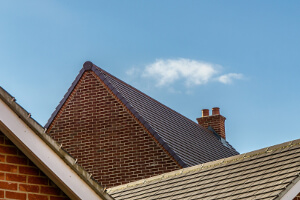
27 Mar 2019 New air quality plans – how do they affect me?
A couple of months ago, in January this year, the government published a new Clean Air Strategy. Its purpose is to reduce the number of particulates in the atmosphere by 2030 using a variety of ways to tackle their emission. While this strategy may be the latest white paper to be published by the government on the issue, it is not a new problem and it is one that we have covered many times through this blog. This latest strategy includes provision for reducing emissions at home and this is what we focus on this month.
How are wood-burning stoves affected?
The use of wood-burning stoves can lead to excessive amounts of pollutants if they are old, not properly maintained, or burning the wrong type of wood. As part of its strategy the government proposes to, amongst other things:
- Introduce legislation to prevent the sale of the most polluting fuels.
- Only allow the cleanest wood-burning stoves to be available on the market from 2022.
- Make changes to the existing smoke control legislation so that it is easier to enforce the regulations when they are not followed.
- Create an information campaign focused on domestic wood-burners to raise awareness of their potential impacts.
How can you help reduce pollution?
Wood is a natural material and burning it need not be harmful. But it must be managed properly. If you have or are consider buying a new wood-burning stove, keep the following in mind:
- Only buy a Defra-approved wood-burning stove. These are designed to high specifications and built to trap the release of harmful pollutants before they can go up your chimney and into the atmosphere. By trapping them in a closed-looped system, they can then be safely disposed of when the time comes to clean or replace the filters.
- Keep your wood-burning stove well serviced. This should be done at least once a year, more often if you are using it heavily. Repair any cracks in the seals or glass as soon as possible and make sure to check and replace filters regularly.
- Avoid burning wood in an open fire – such as an outdoor bonfire – without any means to trap and safely dispose of pollutants.
- Only use seasoned, dry wood. Always source your logs from a reputable provider and ensure that they are kept dry by avoiding storing them in areas where they may get wet from the rain or in damp basements.
- Never burn wood that has been treated or painted as this will release harmful chemicals.
- If you live in a smoke-control area you can only burn smokeless fuel. Wood can only be used in approved devices, such as those that are on the Defra approved or exempted lists. You can check to see if you stove is on the list here.
All the wood-burning stoves carried by Fiveways Fires & Stoves are Defra approved. We would be happy to answer any questions you may have about our stoves or advise you on the right stove or wood if you are looking to replace your old one or find a new fuel stockist. All you need to do is get in touch by phone on 020 8127 4747 or by email at .


